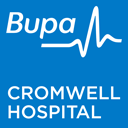
Multiple Sclerosis
Multiple Sclerosis (MS) is the most common non-traumatic cause of disability in young adults. Occurring in around 1 in 1000 people, it is more prevalent in temperate climates such as the UK, and at least twice as common in women. It appears to be increasing in frequency, particularly among women.
The early symptoms of MS vary greatly, from mild alteration in sensation to loss of vision or difficulty walking. There is no single test for MS. The diagnosis is based on the patient’s symptoms and physical signs supported by magnetic resonance imaging (MRI) and examination of blood and cerebrospinal fluid.
In most patients after the first attack there is an improvement followed by stability for months or years before another attack, this is the relapsing remitting pattern (RRMS). Some patients, however, have a progressive pattern with a slow accumulation of disability, this is known as primary progressive MS (PPMS).
The prognosis for MS sufferers is hugely varied. For the majority, MS will be disabling, typically within 10 to 15 years from first diagnosis. However, a minority of patients experience a mild form of the disease, living full and normal lives. In the early stages, an assessment of a patient’s history, along with MRI scans and an analysis of biomarkers such as neurofilaments (NfL) will reveal how the disease is likely to develop over time.
Successful clinical research into disease modifying therapies (DMTs) has dramatically improved the outlook for MS patients in recent years. Dr Turner is actively involved in the development of these new therapies, having treated patients in clinical trials since the 1990s. The first therapies were interferons and glatiramer acetate, which needed to be injected regularly, and had limited impact on the disease process. Today, infrequent infusions of immune cell depleting treatments such as alemtuzumab (Lemtrada) and ocrelizumab (Ocrevus) have a far greater impact on the disease, and can suppress it for years at a time. As a result, ‘No Evidence of Disease Activity’ (NEDA) is now a realistic prospect: with active therapy and close monitoring we can keep patients free of detectable disease activity.
Barts MS, the clinical and research group based at Barts Health and Queen Mary’s University London, has pioneered NEDA and early aggressive immune therapy in MS, leading to improved outcome for people with MS.
There is now evidence that therapies can also benefit those with progressive MS, bringing the prospect of treatment to patients who previously had little hope of intervention.
Dr Turner has also helped pioneer the use of ‘stem cell’ therapy in MS which works by ‘rebooting’ the immune system. Dr Turner is part of the London group actively researching the use of AHSCT in MS.
There are two types of stem cell treatments. Mesenchymal stem cell therapy – by which any basic cell in the body could be adapted and used to replace injured cells – is unfortunately still many years away, particularly for use in MS. By contrast, autologous hematopoietic stem cell transplantation (AHSCT), is already available.
The process of AHSCT, is that stem cells are harvested from the patient’s blood and then by destroying the patient’s immune cells and replacing them with the harvested stem cells, the hope is that the immune system returns ‘renewed’, preventing a recurrence of MS. The data is very encouraging with some 80% of patients remaining stable after 3 years. There is growing evidence that it can be more effective in the early stages of the disease. Further trials are planned which will establish which patients are most likely to benefit from the treatment.
Dr Turner has extensive experience of these new disease modifying therapies and first-hand knowledge of their individual risks and benefits. In addition to stem cell therapy, there are also new generic medications which are less expensive than licenced medications for MS sufferers, as well as new symptomatic therapies. Whilst the disease modifying therapies are exciting, symptom management remains an important aspect of medical intervention with MS. This includes pain management with analgesia – including cannabis based products such as Sativex – bladder control with antimuscarinics and spasticity with medication and Botox.
Dr Turner’s MS research is carried out as Honorary Senior Lecturer at Barts and The London School of Medicine and Dentistry, Queen Mary, University of London. As a member of the Barts MS and Neuroimmunology team headed by Professor Gavin Giovannoni at The Blizard Institute of Cell and Molecular Science, he is at the forefront of ground-breaking efforts to meet the challenges of this complex condition.
Find out more about my specialism in MS here
Here are some other useful links:
http://multiple-sclerosis-research.blogspot.com
www.icms.qmul.ac.uk




